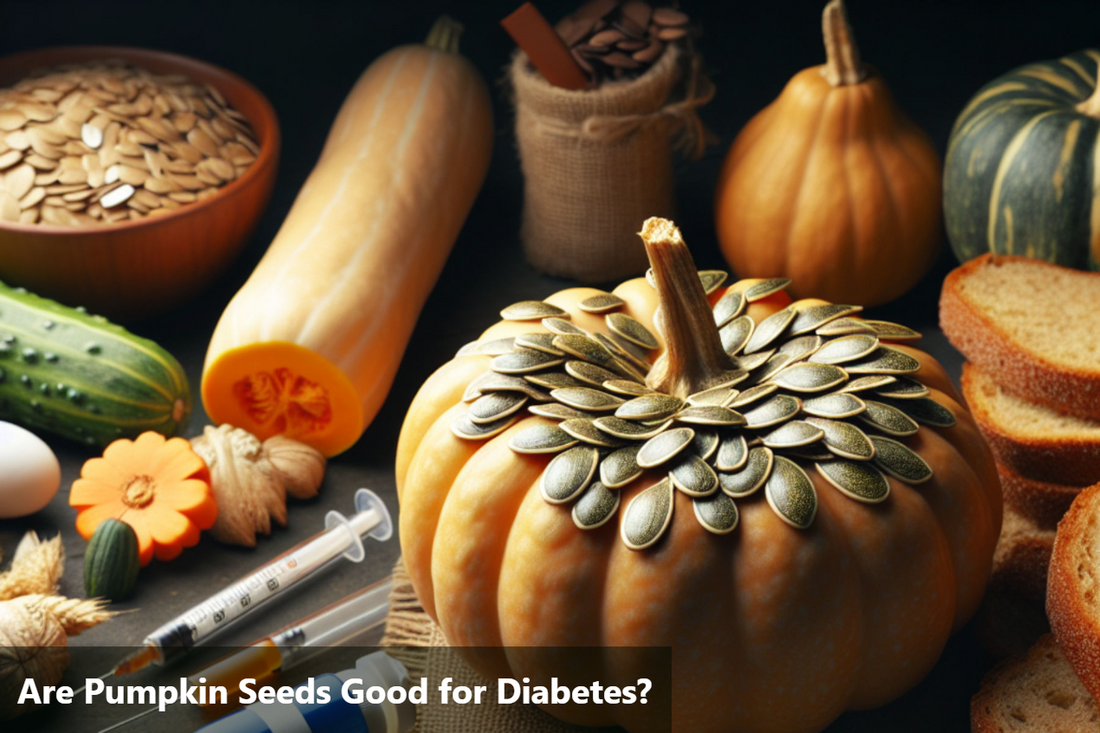Diabetes is a chronic condition characterized by high levels of sugar in the blood. Managing diabetes is crucial to prevent complications and maintain overall health. One key aspect of managing diabetes is through a well-balanced diet. The food we consume directly impacts our blood sugar levels, making dietary choices a cornerstone in diabetes management.
People with diabetes are often curious about specific foods and their effects on blood sugar. Pumpkin seeds have gained attention for their potential benefits in diabetes management. Individuals often wonder if pumpkin seeds are good or bad for diabetes. Understanding the nutritional value of pumpkin seeds and their impact on blood sugar levels is essential for individuals looking to incorporate them into their diet effectively.
Nutritional Value and Benefits of Pumpkin Seeds
Pumpkin seeds are a powerhouse of nutrition and can offer numerous benefits to individuals managing diabetes. These seeds are packed with essential nutrients that can support overall health and well-being, making them a valuable addition to a diabetic diet.
Nutrient |
Amount (per 100g) |
|---|---|
Calories |
559 kcal |
Carbohydrates |
10.7 grams |
Protein |
30.2 grams |
Fat |
49.1 grams |
Dietary Fiber |
6 grams |
Sugars |
1.4 grams |
Calcium |
46 mg |
Iron |
8.8 mg |
Magnesium |
592 mg |
One of the standout features of pumpkin seeds is their high magnesium content, which plays a crucial role in regulating blood sugar levels. Magnesium helps enhance insulin sensitivity, allowing cells to better utilize glucose from the bloodstream. Additionally, pumpkin seeds are rich in fiber, which can aid in controlling blood sugar spikes after meals and promote healthy digestion.
Pumpkin seeds contain plant-based compounds known as phytosterols, which have been associated with improving lipid profiles and reducing the risk of heart disease – a common concern for individuals with diabetes.
Effect of Pumpkin Seeds on Blood Sugar Levels
Fiber Content: Pumpkin seeds are a good source of dietary fiber, which can slow down the absorption of sugar into the bloodstream. This can help prevent rapid spikes in blood sugar levels after meals.
Protein and Healthy Fats: Pumpkin seeds contain protein and healthy fats, which can further slow down the digestion and absorption of carbohydrates, leading to more stable blood sugar levels.
Magnesium and Zinc: Pumpkin seeds are rich in magnesium and zinc, which are minerals involved in insulin secretion, glucose utilization, and overall glucose metabolism. Adequate levels of these minerals may contribute to improved insulin sensitivity and better blood sugar control.
Antioxidants: Pumpkin seeds contain antioxidants, such as vitamin E and phenolic compounds, which have been shown to reduce oxidative stress and inflammation. High levels of oxidative stress and inflammation are associated with insulin resistance and impaired glucose metabolism.
Glycemic Index: Pumpkin seeds have a low glycemic index, meaning they are less likely to cause a rapid increase in blood sugar levels when consumed. Foods with a low glycemic index are generally recommended for individuals with diabetes to help manage blood sugar levels.
Incorporating Pumpkin Seeds into a Diabetic Diet
Snack on Roasted Pumpkin Seeds: Roasting pumpkin seeds with a sprinkle of cinnamon can create a tasty and nutritious snack option. Keep a small portion handy for when hunger strikes between meals.
Add to Salads: Sprinkling pumpkin seeds over salads can add a crunchy texture and nutty flavor. They can be a great alternative to croutons or high-calorie dressings.
Blend into Smoothies: Adding a handful of pumpkin seeds to your morning smoothie can boost its nutritional content. They blend well with fruits and leafy greens, providing a dose of healthy fats and proteins.
Incorporate into Baked Goods: Consider mixing pumpkin seeds into muffin batters or sprinkle them on top of baked goods like whole grain bread for added crunch and nutrition.
Pair with Yogurt: Mixing pumpkin seeds with plain yogurt and a drizzle of honey can create a satisfying and balanced snack rich in protein and healthy fats.
Bottomline
The evidence leans towards the positive impact of pumpkin seeds on diabetes management. When consumed as part of a balanced diet, pumpkin seeds can be a valuable addition for individuals looking to enhance their dietary habits. However, it is crucial to consult with a healthcare provider or a nutritionist to determine the most suitable dietary choices based on individual health needs. Ultimately, incorporating pumpkin seeds sensibly into a diabetic meal plan can be a beneficial step toward achieving better health outcomes.
This Blog post is an initiative by DiabeSmart, to provide accurate and Nutritionist / Doctor approved information related to Diabetes. DiabeSmart is India's first Food brand designed specifically for Diabetics, that has been clinically tested on Diabetics and Pre-Diabetics to deliver 55% - 70% lower Sugar spikes. DiabeSmart is part of Lo! Foods - India's leading brand for Everyday Functional Health foods.











